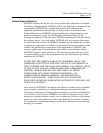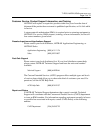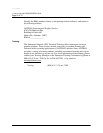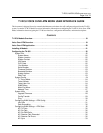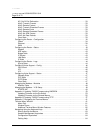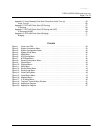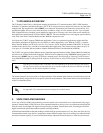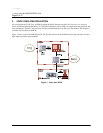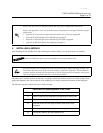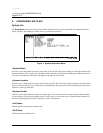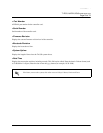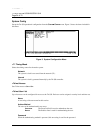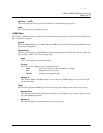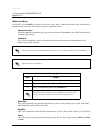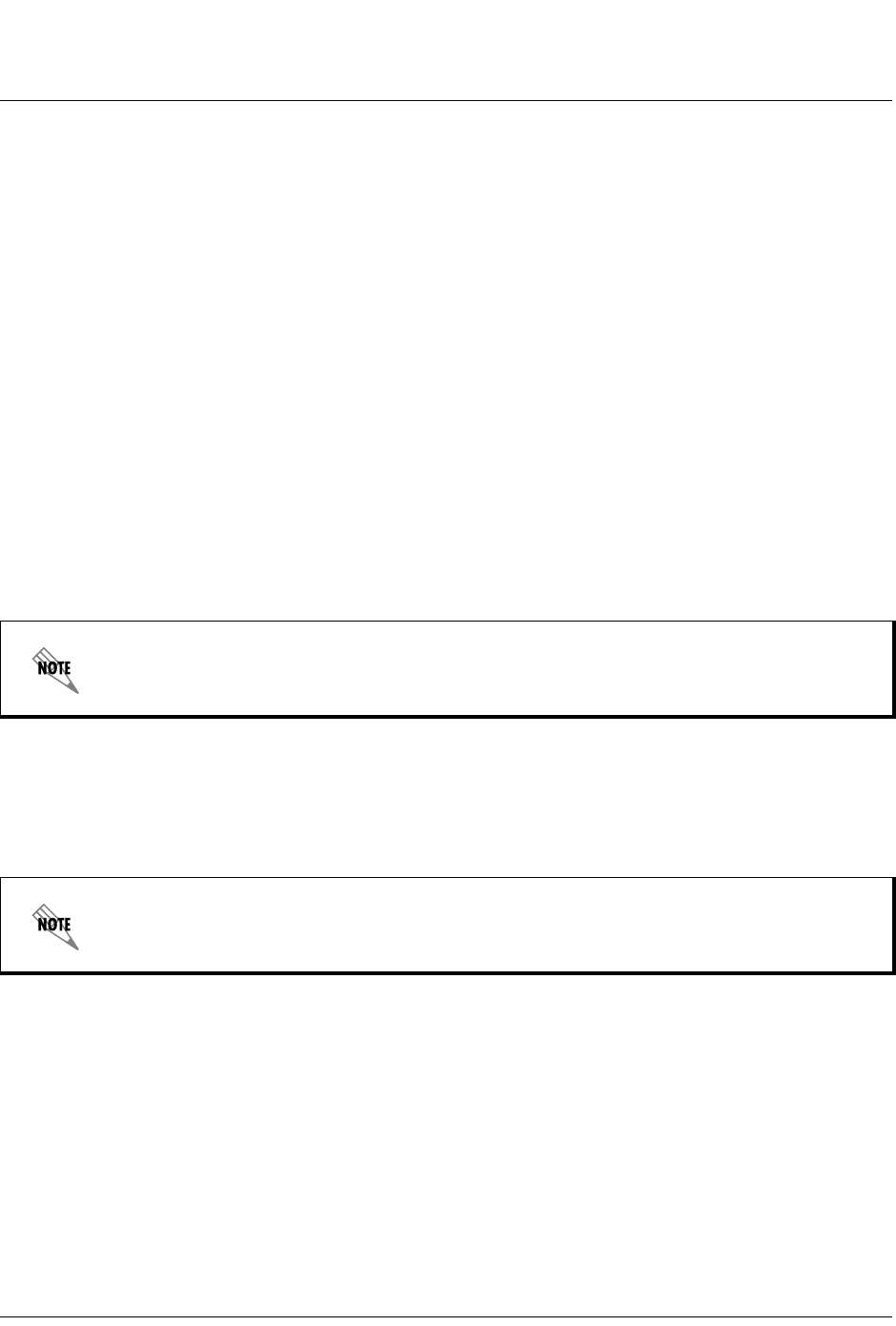
61200375L1-1
TA 850
T1 RCU VoATM UIG/61200376L2-31A
Page 19 of 72
© 2001, ADTRAN, Inc. TA 850 User Manual
1. T1 RCU MODULE OVERVIEW
The T1 Router Control Unit is a dual board assembly that includes a T1 network interface, DSX-1 PBX interface,
Nx56/64 V.35 interface, and built-in IP router. The T1 RCU can provision, test, and provide status for any card in the
channel bank. The faceplate has a DB-9
CRAFT
port connection, dual bantam jack connection, plus network, V.35,
and Ethernet LEDs. Six access slots allow the user to combine a variety of voice and data services. Up to six Quad
FXS or Quad FXO access modules can be installed to support up to 24 analog voice lines. Other access modules for
data applications include the OCU DP and ISDN U-BR1TE. The two remaining access slots support special function
cards such as the Echo Canceller Module and the ADPCM compression card.
Used alone, the T1 RCU supports TDM-based applications. Voice over packet/cell applications require that Echo
Cancellation techniques be applied to the voice traffic to achieve high quality voice. With the T1 RCU, a separate
Echo Canceller Module (see the Echo Canceller User Interface Guide, document number 61200384L1-31) must be
installed in the special slots (A and B) to accommodate these applications. This module cancels echoes for up to 24
voice ports. It is available with and without Adaptive Differential Pulse Code Modulation (ADPCM).
The T1 RCU can operate in three different modes, depending upon the firmware loaded: Channel Bank, Switchboard,
and Voice over ATM (with the Echo Canceller). Firmware can be updated by using XMODEM transfer protocol via
the base unit’s
CRAFT
port or by using TFTP from a network server. (See Appendix A. Updating TA 850 Firmware
using XMODEM on page 53 and Appendix B. Updating TA 850 Firmware using TFTP on page 57 for more informa-
tion.)
The terminal menu is the access point to all other operations. Each terminal menu item has several functions and sub-
menus that identify and provide access to specific operations and parameters. These menu selections are described later
in this User Interface Guide.
2. VOICE OVER ATM OVERVIEW
Voice over ATM (VoATM) is the technology used to transmit voice conversations over a data network using Asyn-
chronous Transfer Mode (ATM). There are several potential benefits to moving voice over a data network using ATM.
First, the small, fixed-length cells require lower processing overhead. Second, these small, fixed-length cells allow
higher transmission speeds than traditional packet switching methods.
ATM allocates bandwidth on demand, making it suitable for high-speed connection of voice, data, and video services.
Conventional networks carry data in a synchronous manner. Because empty slots are circulating even when the link is
not needed, network capacity is wasted. ATM automatically adjusts the network capacity to meet the system needs.
Only the first two dipswitches on the RCU are used. With the first dip switch down (to the right of
the unit if you are facing it), the unit boots up in a mode to update the firmware. With the second dip
switch down, the unit factory defaults at startup.
See Appendix C for instructions about navigating the terminal menus.



